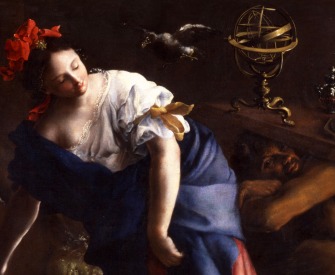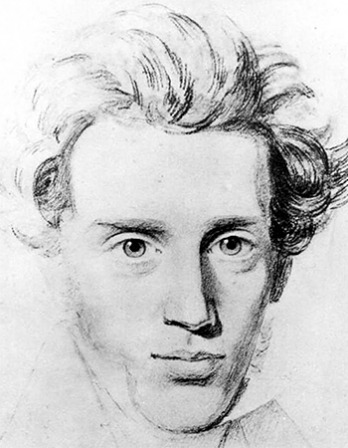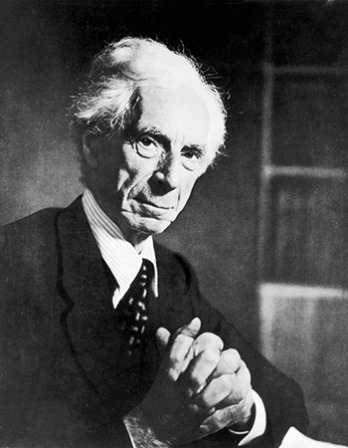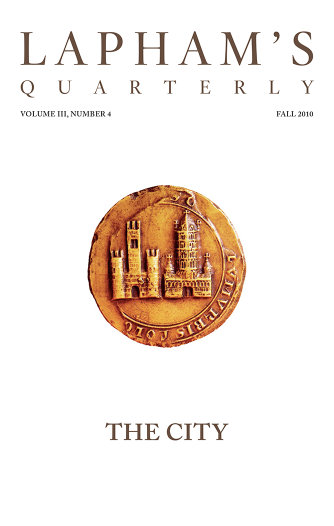Mr. Heard enjoyed the luncheon. “The food, the wine, the service—they were faultless; something altogether out of the way,” he declared with frank conviction.
“Then you must come again,” replied Mr. Keith. “How long did you say you were staying here?”
“Ten days or so.”
“I see you are a man of action. Sometimes I wish I were. A little money has made me lazy, I’m afraid. But I do some thinking, and a fair lot of reading. I travel, I observe, I compare. Among other things I observe that our English system of education is all wrong. We ought to return to that old camp-and-court ideal.”
“All wrong?” queried the bishop.
“Take a case like that young fellow Denis. What is a child of his age doing at a university? No. If I had a son—but I am boring you.”
“I have not been bored since I was twenty.”
“I wish I could say the same of myself. I grow more intolerant of fools as the years roll on. If I had a son, I was saying, I would take him from school at the age of fourteen, not a moment later, and put him for two years in a commercial house. Wake him up; make an English citizen of him. Teach him how to deal with men as men, to write a straightforward business letter, manage his own money, and gain some respect for those industrial movements which control the world. Next, two years in some wilder part of the world, where his own countrymen and equals by birth are settled under primitive conditions and have formed their rough codes of society. The intercourse with such people would be a capital invested for life. The next two years should be spent in the great towns of Europe, in order to remove awkwardness of manner, prejudices of race and feeling, and to get the outward forms of a European citizen. All this would sharpen his wits, give him more interests in life, more keys to knowledge. It would widen his horizon. Then, and not a minute sooner, to the university, where he would go not as a child but as a man capable of enjoying its real advantages, attend lectures with profit, acquire manners instead of mannerisms and a university tone instead of a university taint. What do you think?”
“It sounds a trifle revolutionary,” commented the bishop, with a smile. “But it appeals to me. Education is a matter that lies very near my heart. In fact, I had some thoughts of retiring from the church and devoting myself to it. I feel, I don’t know why, as if I could do more in that direction.”
Keith merely observed, “That is interesting. Perhaps you have reached the end of the church.”
He liked this young colonial bishop and his straightforward, earnest face. Being of a complicated nature himself, he was always drawn toward men of single aims and purposes.
The other would have been pleased to know why Keith found it “interesting” and what he meant by that other phrase, but forbore to inquire. He was rather a silent man, though not deficient in mother wit. He lit a cigarette and waited.
“Let us discourse of education!” said his host with that elaborate manner which the bishop afterward discovered to be peculiar to him. “I think we need not differentiate between the sexes. In proportion as more careers are opened to women, their teaching will tend to converge with that of men. That specifically female education in domestic arts has been rendered superfluous by commercial products. I will tell you what I think. A sound schooling should teach manner of thought rather than matter. It should have a dual aim—to equip a man for hours of work and for hours of leisure. They interact; if the leisure is misspent, the work will suffer. As regards the first, we cannot expect a school to purvey more than a grip of general principles. Even that is seldom given. The second should enable a man to extract as much happiness as possible out of his spare time. The secret of happiness is curiosity. Now curiosity is not only not roused; it is repressed. You will say there is not time for everything. But how much time is wasted! Mathematics…A medieval halo clings around this subject which, as a training for the mind, has no more value than whist playing. I wonder how many excellent public servants have been lost to England because, however accomplished, they lacked the mathematical twist required to pass the standard in this one subject? As a training in intelligence, it is harmful: it teaches a person to underestimate the value of evidence based on their other modes of ratiocination. It is the poorest form of mental exercise—sheer verification; conjecture and observation are ruled out. A study of Chinese grammar would be far more valuable from the point of view of general education. All mathematics above the standard of the office boy should be a special subject, like dynamics or hydrostatics. They are useless to the ordinary man. If you mention the utility of a mathematician like Isaac Newton, don’t forget that it was his preeminently antimathematical gift for drawing conclusions from analogy which made him what he was. And Euclid—that frowsy anachronism! One might as well teach Latin by the system of Donatus. Surely all knowledge is valueless, save as a guide to conduct? A guide ought to be up-to-date and convenient to handle. Euclid is a museum specimen. Half the time wasted over these subjects should be devoted to draftsmanship and object lessons. I don’t know why we disparage object lessons; they were recommended by people like Bacon, Amos Comenius, and Pestalozzi. They are far superior to mathematics as a means of developing the reasoning powers; they can be made as complex as you please; they discipline the eye and mind, teach a child to discriminate between the accidental and the essential, and demand lucidity of thought and expression. And the hours spent over history! What on earth does it matter who Henry XII’s wife was? Chemistry! All this, relatively speaking, is unprofitable stuff. How much better to teach the elements of sociology and jurisprudence. The laws that regulate human intercourse: What could be more interesting? And physiology—the laws that regulate our bodies: What more important? Our disrespect for the human frame is another relic of monasticism. In fact, our whole education is tainted with the monkish spirit. Divinity! Has any purpose ever been served—”
Mr. Keith sighed.
“I wish I had not eaten so many of those prawns,” he added. “What are you thinking?”
“I think modern education overemphasizes the intellect. I suppose that comes from the scientific trend of the times. You cannot obtain a useful citizen if you develop only his intellect.”
From South Wind. After publishing several collections of travel writing on Italy and Tunisia, including Siren Land and Fountains in the Sand, Douglas completed this novel, his first, in 1917 while living on Capri, having fled London after an arrest for gross indecency with a teenage boy. Douglas died in February 1952. Two months later his onetime friend Frieda Lawrence wrote in a letter to the screenwriter Dudley Nichols, “You wouldn’t have liked Douglas. He was, I think, the only wicked man I have known, in a medieval sense, but oh, so witty.”
Back to Issue





